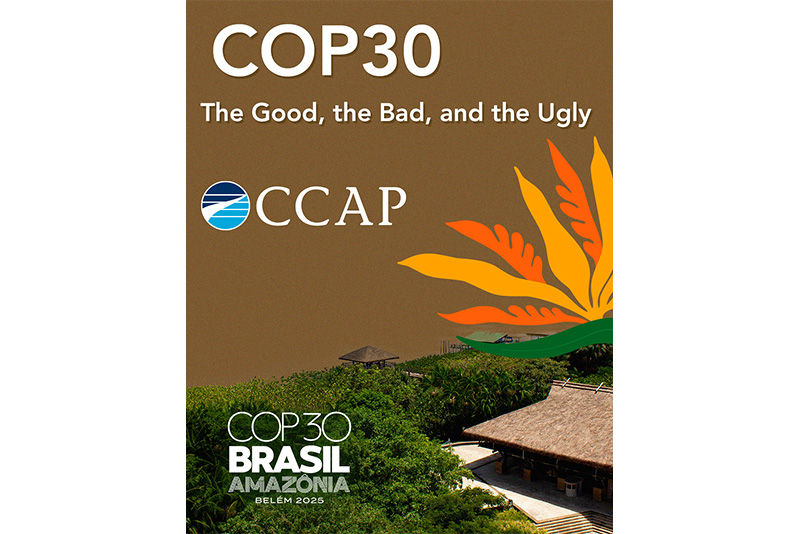Transforming the Energy Sector in the Philippines
- Stan Kolar
- Mar 9, 2017
- 3 min read

The Philippines program, Enabling Distributed Solar Power in the Philippines, was preliminarily selected for funding by the NAMA Facility under its 4th call for proposals. The Center for Clean Air Policy (CCAP) worked with the Philippines Department of Energy over the last 2 years to develop this €20 million program that will accelerate the uptake of rooftop solar photovoltaic (PV) installations by residential, commercial, industrial, and government facilities under the country’s net metering regulations and under self-supply options. The project also supports the Philippines commitment to addressing climate change, and is endorsed by the Philippines Climate Change Commission. Other key partners for the program are the LGU Guarantee Corporation and the World Bank.
Embedded in the Philippine Energy Plan and guided by the Plan’s vision of providing “Energy Access for More,” the program will enable electricity customers to produce clean, renewable solar power for their own consumption. When fully funded, the program will establish a technology certification and PV installer accreditation process to ensure the quality and reliability of the PV technology installed.
Despite favorable economics in many areas and an overall policy framework to enable renewable energy, the following barriers have been hindering higher penetration levels of rooftop solar installations:
Banks and leasing companies have been reluctant to offer reasonably priced, reasonably termed, standardized, financing products due to perceived market and technology risks, and the perception that the market is too small.
Distributed energy projects must undergo complicated permitting processes, which can require multiple permits, all of which increase the soft installation costs.
The absence of technology certification and installer accreditation programs leads to higher risks, higher transaction costs, and lower safety and trust for grid operators, consumers, and lenders.
To achieve its objective of accelerating the uptake of rooftop solar installations, the NSP will establish:
A comprehensive Technical Assistance Facility to support the development of solar technology standards and installer accreditations. The Facility will also help simplify permitting and approval processes for solar installations and build capacity of local governments and grid operators to process solar permitting applications.
A Financing Support Fund consisting of a partial credit guarantee fund and a project preparation facility designed to develop a pipeline of bankable projects. The partial credit guarantee fund will enable local banks to provide competitive financing for solar projects and to enter the solar financing market on large scale.
A National Steering Committee, chaired by the Climate Change Commission, to provide overall program guidance and feedback.

The NAMA support project will leverage approximately €75 million in private sector investments and directly lead to the financing of 50 MW of distributed solar installations. The project will accelerate development of the distributed solar market, estimated at over 3,000 MW, and is expected to lead to 1.8 million tons of CO2e in direct reductions.
Over the next year, the CCAP will continue to work with the Philippine Department of Energy to develop the detailed design of the program, secure domestic approvals, prepare the necessary legal instruments and agreements, and submit the full proposal to the NAMA Facility for final funding approval.
The NAMA Facility is a multilateral support fund initially established by the German and UK governments in 2013, and later joined by Denmark and the European Commission. It supports developing countries and emerging economies that show leadership in tackling climate change and want to implement ambitious climate mitigation measures.
CCAP’s work over the past 2 years on developing this ambitious program was made possible by support from Germany’s International Climate Initiative program and Denmark’s Ministry of Foreign Affairs. This is third project developed by CCAP that has secured financing from the NAMA Facility, the previous ones being the Colombia Transport Oriented Development NAMA and the Colombia Refrigerator NAMA.
Building off its successful track record in designing and delivering successful transformational mitigation projects, CCAP is presently initiating the Climate Project Accelerator. The Accelerator will build clean energy project pipelines in developing countries, and increase the velocity of projects moving from conceptualization to implementation. CCAP’s Accelerator will utilize advantages of codification and advancement of replicable clean energy solutions, deliver in-country access to private and public investment that advances clean and resilient electricity applications, and engage the private sector in growing the clean energy sector that is supportive of further climate ambition.





شيخ روحاني
رقم شيخ روحاني
الشيخ الروحاني
الشيخ الروحاني
شيخ روحاني سعودي
رقم شيخ روحاني
شيخ روحاني مضمون
Berlinintim
Berlin Intim
جلب الحبيب
https://www.eljnoub.com/
https://hurenberlin.com/